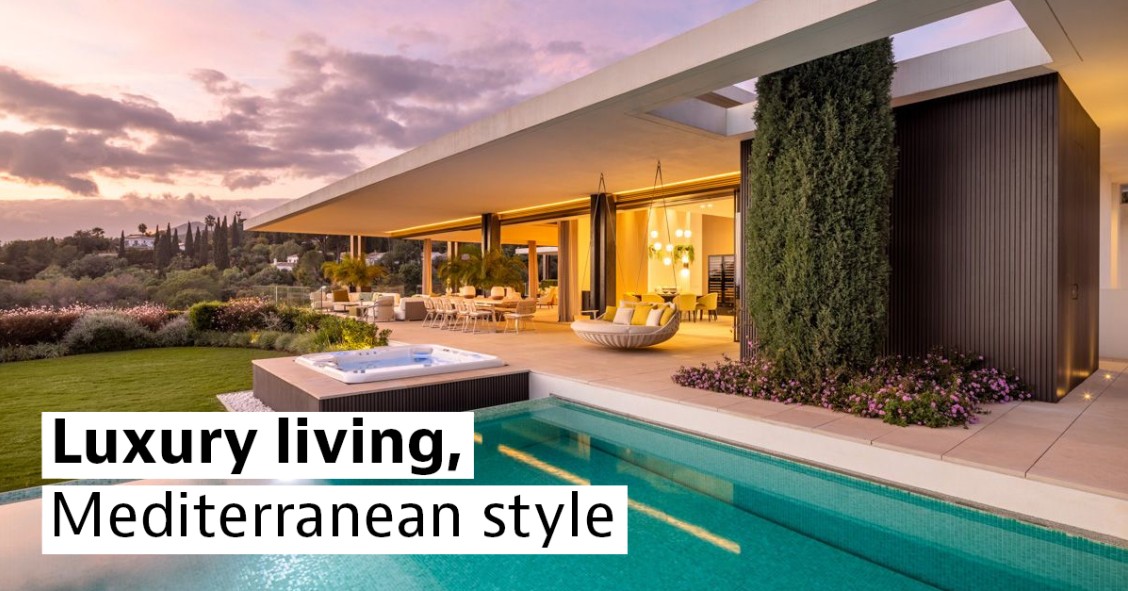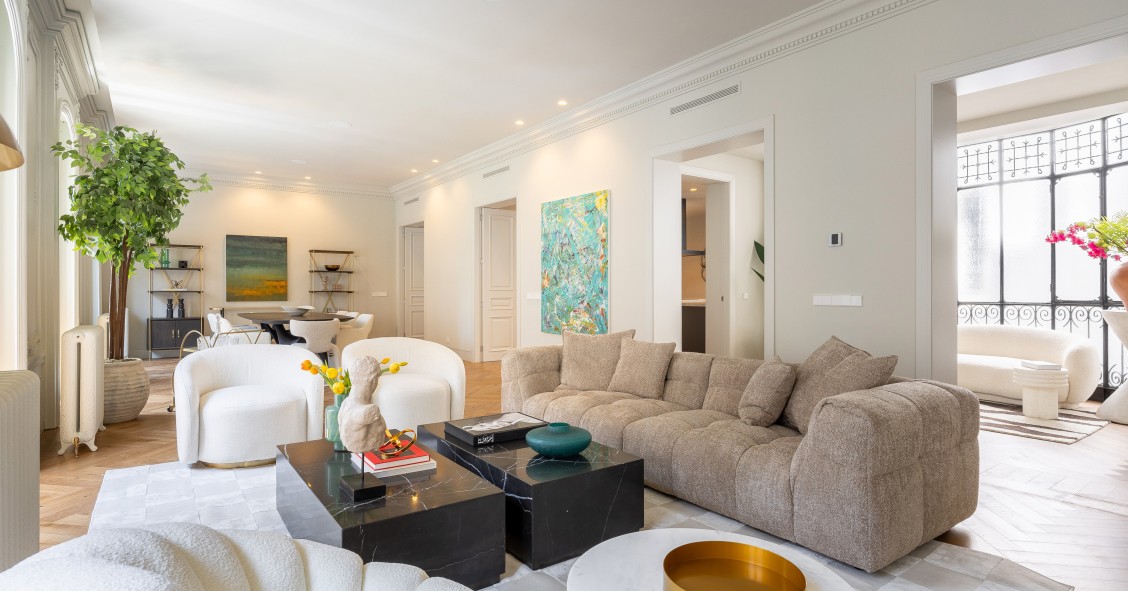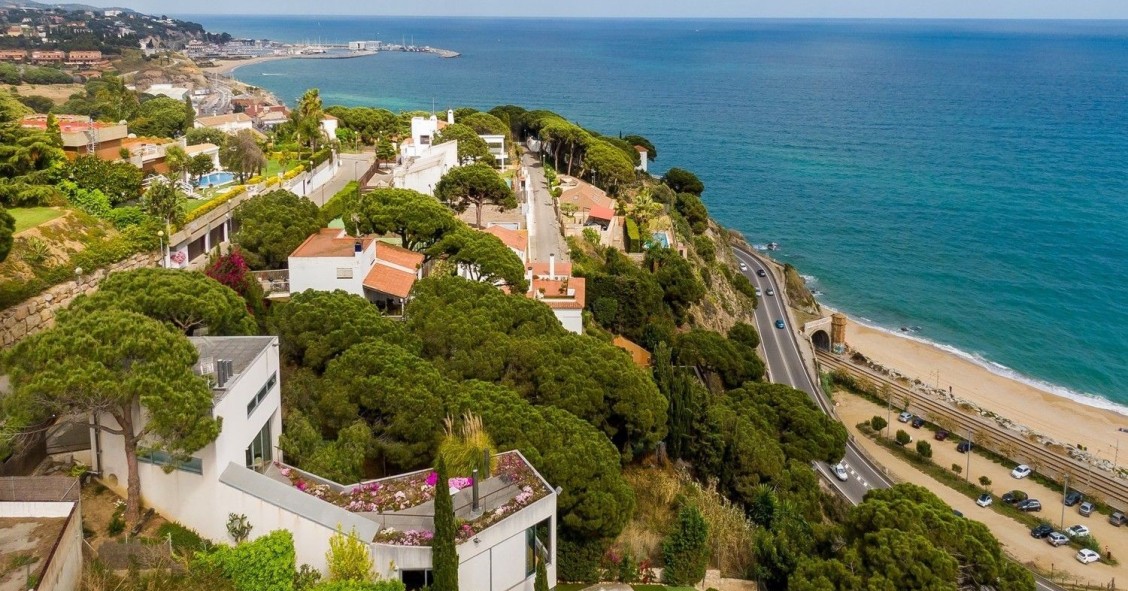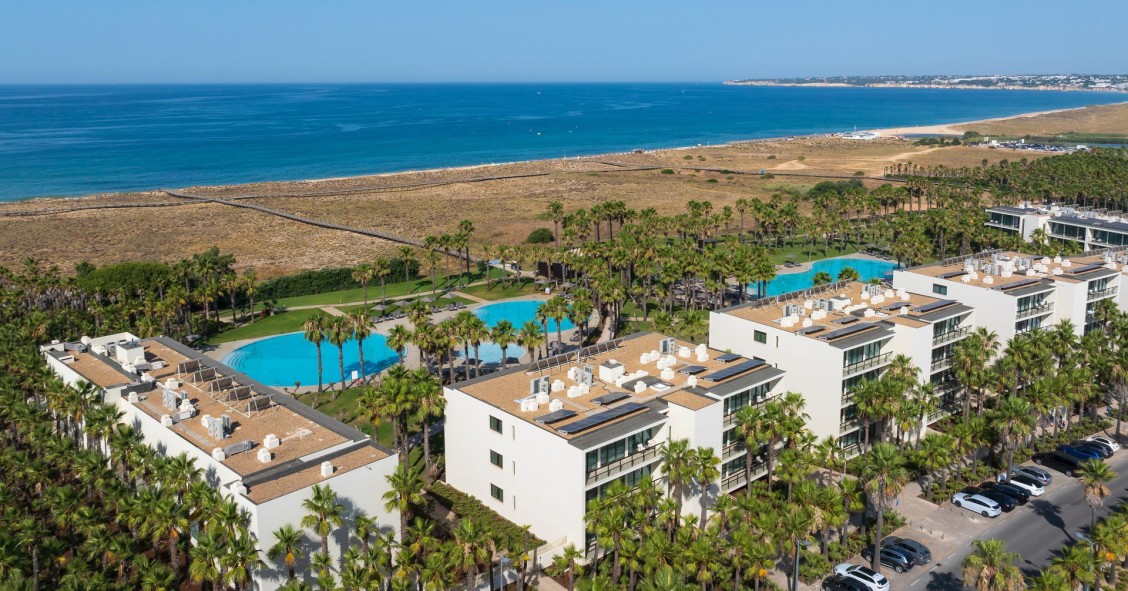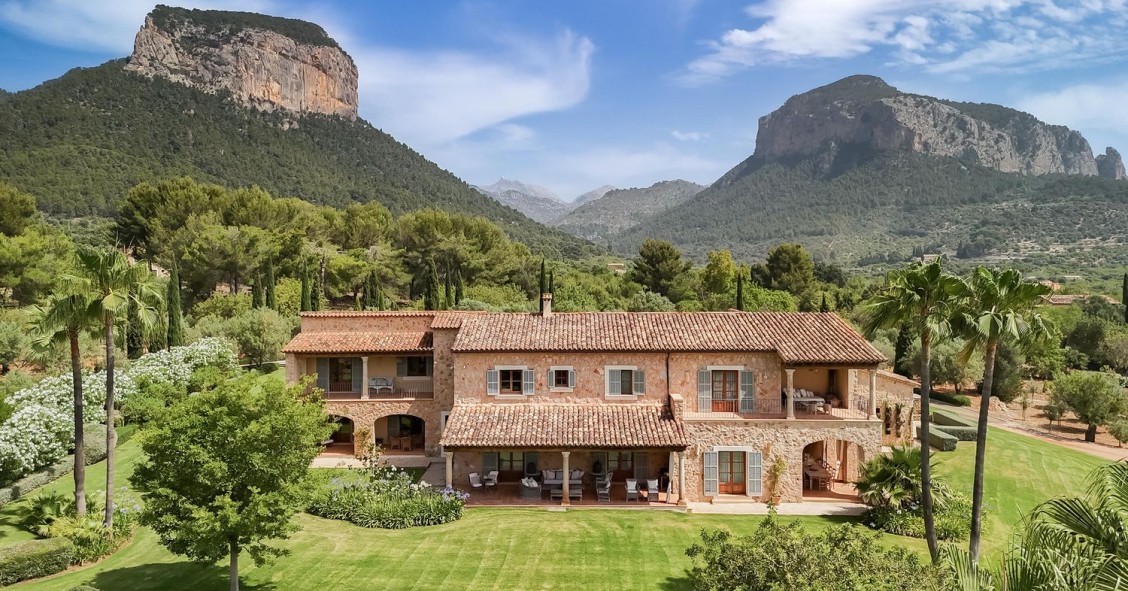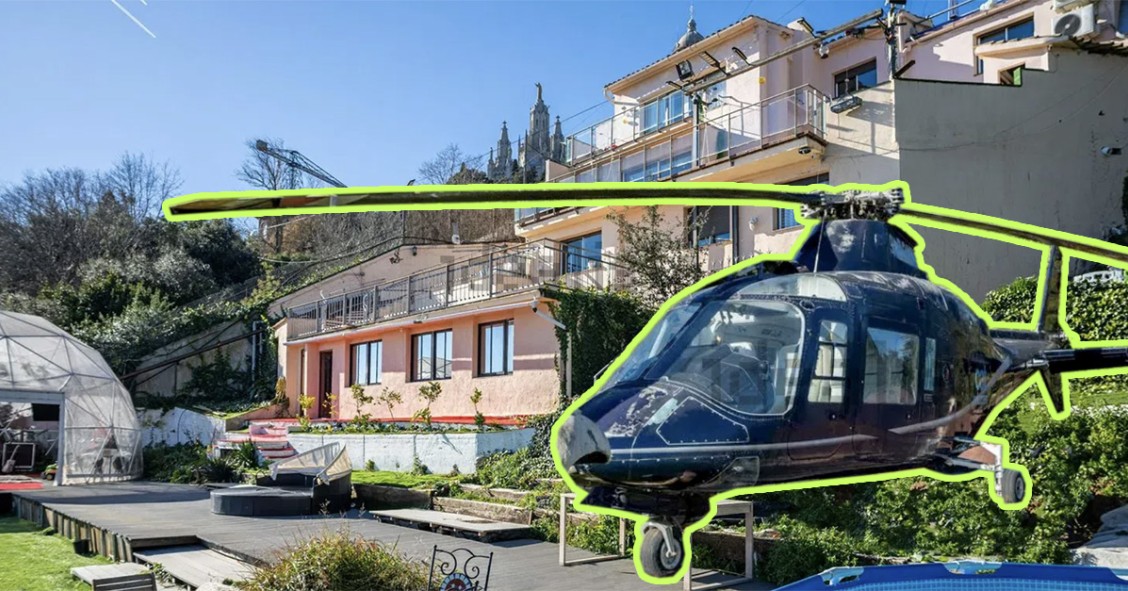
Spain has been the place chosen by the US real estate platform Pacaso to expand its business model of co-ownership of luxury homes in Europe, already implemented in California and Florida. idealista/news interviewed its global president, Razor Suleman, about this system with up to eight co-owners per home, starting from 430,000 euros per person, with offers of luxury villas in Ibiza and Costa del Sol.
Pacaso's operation focuses on buying luxury single-family homes in exclusive locations and then marketing them on a co-ownership basis through its website. In Spain it has chosen two important markets for luxury housing on the coast, Ibiza and the Costa del Sol in Malaga.
At the moment, it has five offers of high standing second homes, four in Marbella and one in the Pitiusas Islands. The most affordable price is the Ibiza property with a value of 2.5 million euros, which is being offered for around 430,000 euros for the eight co-owners, including management fees and taxes.
The most expensive property is in the Nueva Andalucía area with a price tag of 4.6 million euros, with five bedrooms and seven bathrooms. Co-ownership is offered for almost 790,000 euros for each of the eight owners of the villa.
Razor Suleman, Global President of Pacaso, answers idealista/news questions.
What is Pacaso's business model?
Pacaso makes second home ownership more affordable for more people. We help them reduce the margin of loss that comes with not enjoying their home more than they could. We make real ownership possible with far less hassle than traditional purchase options.
Buyers purchase a home from a select list of Pacaso's luxury second homes. The property is sold in eight parts, eight shares, with integrated financing available.
What we do is create a Limited Company (SL) for each home, find and vet the co-owners, and manage all the details of the sale. At the closing of the transaction, the co-owners enjoy 100% ownership of the property.
Pacaso does not retain any shares. The company manages everything for the new co-owners, from interior design and property management to bill payments and repairs.
One of the key aspects of our business model is to make the most efficient use of second homes throughout the year, including the off-season. This also ensures that local businesses, such as restaurants, beach clubs or cultural entertainment, remain active during these periods.
In the US, second homes are often empty for 10 to 11 months of the year, which can have a major impact on the local economy. Pacaso helps to solve this problem in the holiday destinations in which we operate, as the properties we sell have a 90% utilisation rate.
How did Pacaso come about in the US?
Our CEO and co-founder, Austin Allison, came up with the idea for Pacaso after experiencing the profound impact that owning a second home had on his life. It added so much to his life, and provided him with a place where his family could have a home and gather with family and friends. However, it was expensive to run and rent was a problem.
Inspired by his own experience, he set out to create Pacaso, which makes second home ownership more accessible to more people, but without the hassles of the conventional model.
Our goal of taking people's lives to another level has also appealed to me, and I'm delighted to expand our offering in Spain, with an eye on Europe's top destinations as well. We have created a new category of second home ownership, and our service offering is unique.
What is the difference between the co-ownership offered by Pacaso and the timeshare of a house?
The most basic difference between a Pacaso home and a timeshare is that here we allow you to have a single-family home in real ownership. With timeshare, people buy only the right to use a hotel room or a flat for a certain period of time.
With Pacaso, the owner owns a real estate asset. If you buy into a holiday club or timeshare, all you are doing is paying upfront for the right to use a particular type of hotel room for a certain period of the year. It is a totally different model.
How are the houses managed on a day-to-day basis?
Pacaso charges an ongoing monthly fee of 199 euros per co-owner which is significantly less than any monthly maintenance fee for a property of this type. Services include property maintenance, house cleaning, a concierge service, which includes 'premium' services such as restaurant reservations, and other leisure activities such as organising private dinners, and even a grocery shopping service, among others.
What type of property is Pacaso looking for to sell in co-ownership?
Pacaso buys single-family homes in prime second home destinations. These are high-end single-family homes in exclusive locations that are then sold for co-ownership through various channels, mainly on the pacaso.com website.
What is the profile of your clients?
We work with a wide range of people, but what we have found is that a majority of our clients are families with children at home (over 50% of our client base), and a majority of our buyers are first time second home owners.
And how are you doing in attracting new co-owners to Pacaso homes?
Since our launch, we have had a very positive reception in Spain. The demand for the properties we have published has been incredible, in fact, our first home in Marbella sold in record time.
The properties we have available for co-ownership are characterised by modern, spectacular, high-end villas in prime locations. Pacaso gives the buyer the opportunity to access this type of property at a much more accessible price, thus responding to an important market need.
Why did you decide to enter Europe through Spain?
We did a lot of research and determined that Spain, and specifically the Costa del Sol, was one of the top second home destinations in the world. It is an ideal environment to own a second home, with over 320 days of sunshine a year, warm people and stunning homes, all set against the backdrop of the mountains and the sea.
What are your next European markets to invest in?
We are a fully distributed company and have employees in more than six countries. We are evaluating several locations, but we do not yet have specific destinations that we can confirm. However, after Spain, we can say that our next market will be the UK.
Has Spain been the echo of some problems with the neighbourhood close to houses managed by Pacaso? What do you have to say to the criticisms that have arisen due to price increases or gentrification of the areas where you invest?
The relationship with our Spanish neighbours is excellent. We have had an extraordinary response in the areas where we have bought properties and we hope to continue to foster warm relationships with the neighbours and all members of the community.
From the moment we began our international expansion in Spain, we have designed a plan to reach out to local, regional and national representatives to explain our model and its benefits to the local community.

